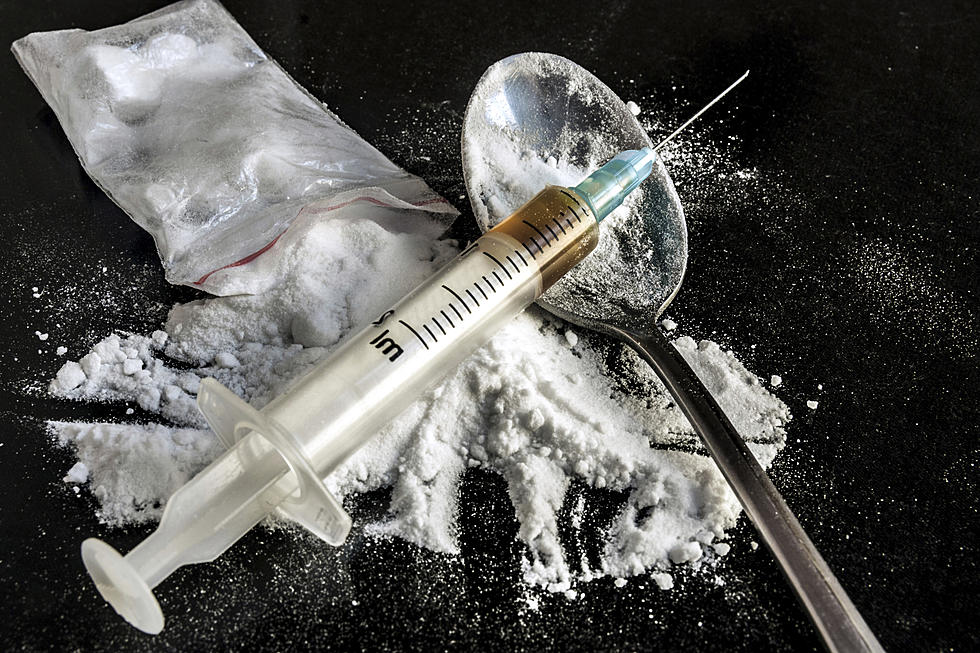
NJ judge says Eagle scout’s sex assault of drunk girl is not real rape
At a house party with about 30 pajama-wearing adolescents drinking alcohol, a 16-year-old boy led a staggering-drunk teenage girl into a hidden corner of the basement and sexually assaulted her while recording it on his phone, prosecutors said.
Afterward, investigators said, the boy sent at least seven of his friends a copy of the clip with the caption: “When your first time having sex is rape.”
Prosecutors, calling the teen’s actions “cruel” and “sophisticated and predatory” beyond his age, want him to face justice in adult court.
A Family Court judge, however, didn’t think what happened to the girl was really rape and said prosecutors should have explained to the humiliated victim that pressing charges would ruin the life of her attacker — an Eagle scout with good grades from an “excellent school.”
An appellate panel overturned Judge James Troiano’s decision.
It was one of two successful appeals in June by state prosecutors using the juvenile waiver law, which allows defendants as young as 15 to be tried as adults when they’re accused of the most serious, violent crimes.
In Middlesex County, Judge Marcia Silva had denied a waiver because she did not believe that a bleeding 12-year-old had suffered enough to warrant trying her 16-year-old perpetrator as an adult.
“Beyond losing her virginity, the state did not claim that the victim suffered any further injuries, either physical, mental or emotional,” Silva reasoned in a decision that shocked many readers after New Jersey 101.5 reported details of the cast last month.
Appellate judges criticized Silva for minimizing the harm against the 12-year-old victim, and in Troiano’s case, cautioned against bias in favor of teenagers from privileged families. In both cases, the decisions were overturned because the judges had second-guessed prosecutors whose judgment the Family Court is supposed to rely on.
But prosecutors say a proposed change to the law could make it harder for prosecutors to win such appeals.
A bill introduced by state Sen. Troy Singleton, D-Burlington, would give Family Court judges greater discretion in deciding whether to waive a juvenile up to adult court.
A spokeswoman for Singleton last week said that the lawmaker believes that “transferring youth to the adult criminal justice system should be limited, and reserved for those youth that commit the most serious and violent of acts, among which include homicide and sexual assault.”
Monmouth County Prosecutor Christopher Gramiccioni, however, said that’s what’s happening now.
“It’s basically a solution in search of a problem,” Gramiccioni said last week about the bill. “There are such great checks and balances in our already very protective and rehabilitative juvenile justice system that this is just not necessary.”
It's not clear what prompted Singleton to introduce his bill. His chief of staff said Singleton was not available for an interview last week because of illness.
The state’s juvenile justice system is focused on rehabilitating youth rather than punishing them. Many cases involving juveniles never make it before a judge because the law allows for “stationhouse adjustments” in which local police departments work with victims and the families of juveniles to make restitution and provide consequences such as community service.
More serious offenses result in proceedings in Family Court, which are closed to the public in order to protect the juvenile suspects’ privacy. Juvenile cases are not presented to juries. Juveniles are not found guilty, but “adjudicated delinquent” and their records are kept from public view or background checks. Punishment can include incarceration, but judges usually hand down probationary sentences. Juvenile inmates also are eligible for parole much sooner than adults.
A law that went into effect in 2016 prohibits defendants younger than 15 from ever being tried as adults, bans solitary confinement for juveniles, and allows for juveniles convicted in adult court to service their time in juvenile facilities.
The law allows prosecutors to waive up juvenile cases to adult court for the most serious violent offenses. To do so, a prosecutor has to show a Family Court judge that they considered 11 factors:
- The nature and circumstances of the crime
- Whether the crimes were against people or property
- The degree of the juvenile's culpability
- The age and maturity of the juvenile
- Whether the juvenile has special learning needs
- The degree of criminal sophistication
- The nature and extent of past run-ins with the law
- Whether the juvenile previously served time in a juvenile facility and how well they responded
- Involvement with child welfare agencies
- Evidence of mental health concerns, drug abuse, or emotional instability
A Family Court judge can deny a waiver if a prosecutor does not consider all factors, considers irrelevant factors or makes a “clear error of judgment.”
Gramiccioni said teens are given dozens of opportunities to turn their lives around after they have committed most types of crimes, but sometimes the nature of the offense requires a different approach.
Prosecutors and police say lenient juvenile justice systems are exploited by street gangs that recruit young people, figuring that the courts will go easier on them.
“The charges that actually get waived to adult court, by statute, are only ones that are the most serious crimes you can imagine, like aggravated sexual assault, first-degree robbery, murder, attempted murder,” Gramiccioni said.
“You’re seeing prosecutors use this only in the instances where it is completely and wholly necessary, where there’s serious victims of crime and serious need to prosecute these folks in adult court.”
In the Middlesex County case, Judge Silva cited what she believed was a high number of waivers — a factor that the appellate decision says was not relevant for her to consider.
According to a spokeswoman for the state Judiciary, prosecutors have made 450 waivers since 2015, an average of about eight a month. The spokeswoman was unable to provide a breakdown by year to see whether waivers increased after the 2016 law.
Gramiccioni said his office has made nine waiver requests since 2015 for cases involving murder, attempted murder and robbery charges. A list of those cases is below.
One of the charges for which prosecutors can seek a waiver is sexual assault.
In the pajama party case, authorities charged the 16-year-old with first-degree aggravated sexual assault, second-degree sexual assault, third-degree invasion of privacy charges for filming and for sharing images, and third-degree child endangerment.
According to the investigation, the 16-year-old girl was so drunk during the party that she fell to the floor vomiting after the sexual assault. The next day, surprised by her torn clothes and bruised body — including hand marks from where several boys had slapped her butt — the girl confided to her mother that she suspected that sexual activity had occurred without her consent.
In the months that followed, authorities said the video — which they said showed the teenage boy penetrating her from behind while her head banged against a wall — was circulated among the boy’s friends. When the girl found out, she confronted the boy but he denied having recorded the video, prosecutors said. The girl’s mother called police, who got the boys to delete their copies of the video.
The girl and her family then decided to press criminal charges in 2017.
In seeking the waiver last year, prosecutors noted that the boy “engaged in vaginal intercourse with [the victim] while she was visibly intoxicated, physically helpless and unable to provide consent.”
“[The suspect’s] conduct as it relates to the charged offenses was both sophisticated and predatory. He was aware of the off-limits areas in advance of the party. At the time he led [the victim] into the basement gym, she was visibly intoxicated and unable to walk without stumbling. For the duration of the assault, the lights in the gym remained off and the door was barred by a foosball table. Filming a cell phone video while committing the assault was a deliberate act of debasement. And, in the months that followed, he lied to [Mary] while simultaneously disseminating the video and unabashedly sharing the nature of his conduct therein. This was neither a childish misinterpretation of the situation, nor was it a misunderstanding. [The suspect’s] behavior was calculated and cruel. This level of criminal sophistication warrants the elevation of this case via involuntary waiver to the adult criminal.”
Under New Jersey’s criminal code, there is no crime called “rape,” although first-degree aggravated sexual assault — a violent crime involving sexual penetration — is what most people would refer to as rape.
But for Judge Troiano, there is a “distinction” between “a sexual assault and a rape.”
According to Troiano, the “traditional case of rape” involves one or more males against a female, using a gun or weapon to get the victim into an abandoned house, shed, or shack “and just simply taking advantage of the person as well as beating the person, threatening the person.” What happened at the basement of the pajama party, in Troiano’s mind, didn’t rise to that level.
Troiano doubted whether the girl could have gotten as drunk as she said she did and said he found it “extremely difficult” to consider what happened to be “sophisticated or predatory.”
In response to the video’s caption — “when your first time having sex is rape” — Troiano said “it really doesn't make a lot of difference because the whole paragraph to me is just a 16-year-old kid saying stupid crap to his friends.”
“[D]o I believe that it shows in any way a calculation or cruelty on his part or sophistication or a predatory nature? No, I do not.”
Troiano also spoke highly of the accused.
“[T]his young man comes from a good family who put him into an excellent school where he was doing extremely well ... He is clearly a candidate for not just college but probably for a good college. His scores for college entry were very high.”
He added that he was concerned that that the prosecutor had not explained to the victim and her mother “the devastating effect a waiver would have on [his] life.”
To that, the appellate decision responded: “That the juvenile came from a good family and had good test scores we assume would not condemn the juveniles who do not come from good families and do not have good test scores from withstanding waiver applications.”
In reversing Troiano — a long-time judge who was recalled from retirement to fill vacancies on the bench — the appellate decision says his ruling “sounded as if he had conducted a bench trial on the charges rather than neutrally reviewed the state’s application.”
Instead of relying on the prosecutor’s judgment, the appellate judges said their colleague accepted the teen boy’s defense theory and “decided the case for himself.”
Gramiccioni said this case shows why the law shouldn't give judges more discretion because they are operating "in complete darkness" about the investigations.
Gramiccioni said his office will present the case to a grand jury and, if an indictment is handed up, try the accused in adult court.
Monmouth County waivers
2015
Mesiah Settles was 15 when he was charged with an 18-count complaint involving armed robbery, conspiracy, possession of illegal weapon, and drugs. Prosecutors say Settles held up a Neptune man with a sawed-off shotgun. He was convicted in December 2016 and sentenced to 340 days of time served.
2016
Esteven Rodriguez was 15 when he was charged with two counts of attempted murder of two women, possession of a weapon, witness tampering and terroristic threats. Police say Rodriguez fired his gun 6 or 7 times at the women after an argument over a dog. The case was voluntarily waived to adult court, where he was convicted in June 2016 and sentenced to four years in prison.
2017
Kasheema Marable was 17 when she was charged with attempted murder and conspiracy to commit murder. Prosecutors say she conspired with her adult brother to kill two people, one of whom was shot in the chest and thigh. She was sentenced in April 2018 to three years in prison.
2018
In addition to the rape case, prosecutors made three other waivers in this year.
Jachin Wordsworth was 16 years old when he fired a gun four or five times into a house when two adults and three children were inside. Wordsworth was already subject to the court’s juvenile intensive supervision program and was wearing an electronic monitoring bracelet at the time of the shooting. He was convicted and sentenced to five years in prison.
Ja-Del Birch was 16 when he was charged with murder, conspiracy to commit murder and weapons offenses after shooting five rounds into a building, killing a 10-year-old boy and seriously injuring his mother. Birch was trying to shoot someone else. He was convicted in January 2019 of aggravated manslaughter and sentenced to five years in prison.
Prosecutors are seeking a waiver for a Long Branch teen who was 16 in 2017 when he was accused of shooting and killing his parents, sister and family friend on New Year’s Eve.
2019
A teen charged with attempted murder and weapons possession agreed to be waived to adult court, where the juvenile pleaded guilty to aggravated assault. The juvenile is expected to be sentenced in September to five years in prison.
More From WOBM News:
More From 92.7 WOBM










